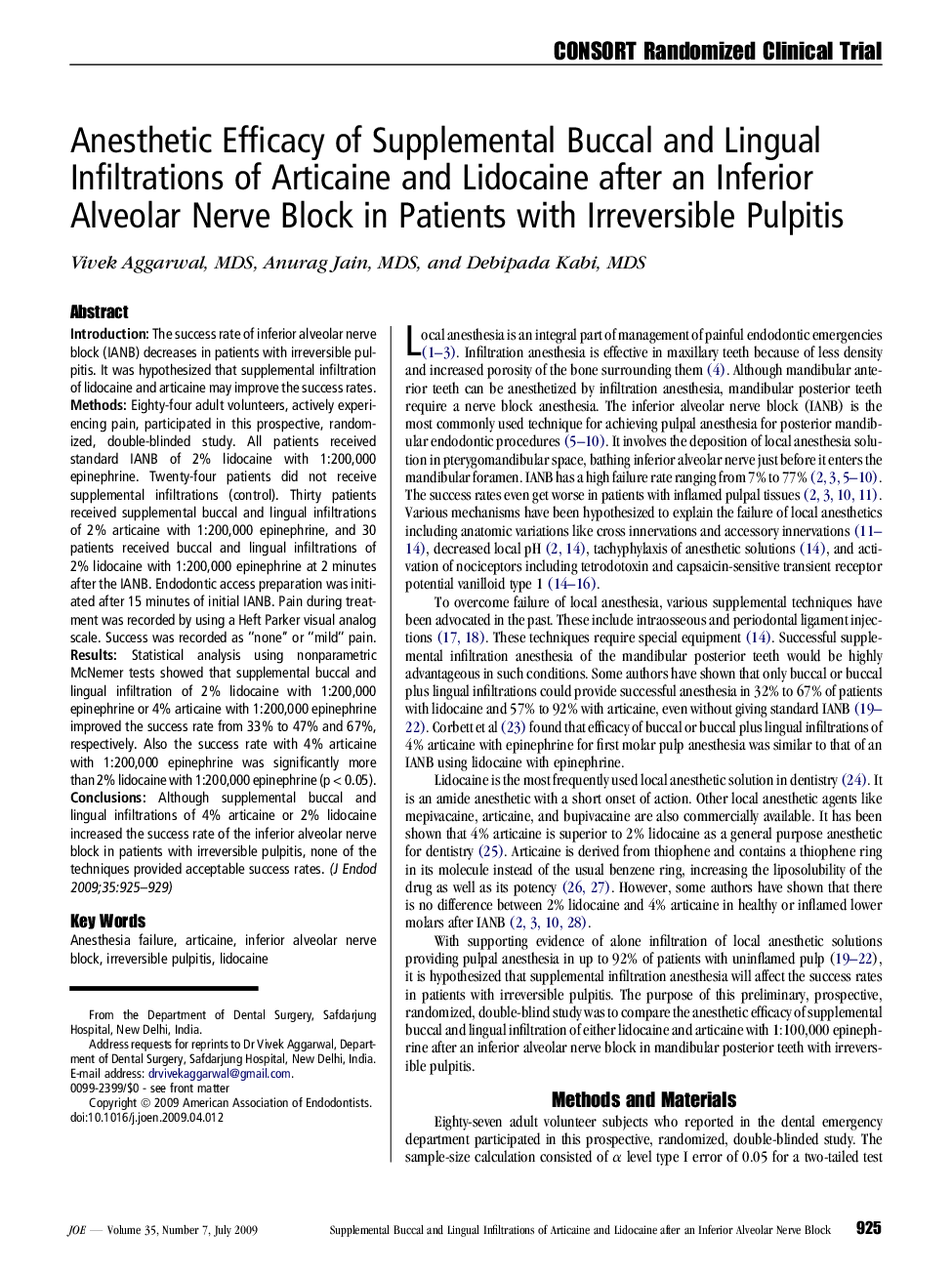| Article ID | Journal | Published Year | Pages | File Type |
|---|---|---|---|---|
| 3148501 | Journal of Endodontics | 2009 | 5 Pages |
IntroductionThe success rate of inferior alveolar nerve block (IANB) decreases in patients with irreversible pulpitis. It was hypothesized that supplemental infiltration of lidocaine and articaine may improve the success rates.MethodsEighty-four adult volunteers, actively experiencing pain, participated in this prospective, randomized, double-blinded study. All patients received standard IANB of 2% lidocaine with 1:200,000 epinephrine. Twenty-four patients did not receive supplemental infiltrations (control). Thirty patients received supplemental buccal and lingual infiltrations of 2% articaine with 1:200,000 epinephrine, and 30 patients received buccal and lingual infiltrations of 2% lidocaine with 1:200,000 epinephrine at 2 minutes after the IANB. Endodontic access preparation was initiated after 15 minutes of initial IANB. Pain during treatment was recorded by using a Heft Parker visual analog scale. Success was recorded as “none” or “mild” pain.ResultsStatistical analysis using nonparametric McNemer tests showed that supplemental buccal and lingual infiltration of 2% lidocaine with 1:200,000 epinephrine or 4% articaine with 1:200,000 epinephrine improved the success rate from 33% to 47% and 67%, respectively. Also the success rate with 4% articaine with 1:200,000 epinephrine was significantly more than 2% lidocaine with 1:200,000 epinephrine (p < 0.05).ConclusionsAlthough supplemental buccal and lingual infiltrations of 4% articaine or 2% lidocaine increased the success rate of the inferior alveolar nerve block in patients with irreversible pulpitis, none of the techniques provided acceptable success rates.
